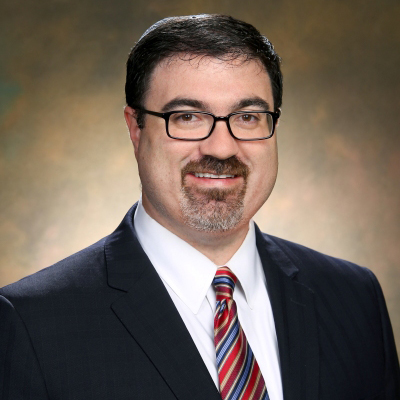Nearly three years ago our household welcomed an exceptionally large and energetic puppy. One sunny day, while I was enjoying a lively soccer game with my kids, our exuberant pup chased after a ball intended for me. Amid the excitement, I zigged in one direction, and she zagged in another, which led to a painful collision with my knee.
What came next?
A surgery to repair a torn meniscus and rigorous rehabilitation. However, even after all these efforts, I found myself back in my doctor’s office, battling persistent knee pain. “Doc,” I asked, “is there anything you can do?” My doctor explained that while he cherished the opportunity to operate again, another surgery would not bring further relief. His advice was clear and simple: “Asher, it’s time to work on your health.”[1]
In January, I began an intensely personal journey. It wasn’t one that required packing bags or obtaining a passport. Rather, it was a call for introspective transformation, a deliberate commitment to improving my health and well-being, reducing pain, and adopting a healthier lifestyle. Embracing this path also meant facing some uncomfortable truths.
Bottom line: I frequently prioritized the needs of others over my own, and my personal health often took a backseat. I neglected proper nutrition and rarely found time to exercise. And with heart-disease rampant in my family, I knew that I was on a trajectory that could lead to an early eulogy.
I share this neither to gain sympathy nor to complain, nor because I view myself as an exemplary figure for others. It’s an honest reflection on my personal challenges and the journey home that I’ve been on. Everyone’s relationship with their work, their body, and their health is deeply individual.
At this season we talk about Teshuvah, commonly translated as “repentance.” Teshuvah is better understood as a “return” or “homecoming.” Rather than merely mending errors, it’s a journey of reconnection to our genuine self, which life’s diversions, detours, dilemmas, distresses, and difficulties may have dimmed. This season beckons us to align closer to our inner core, embracing the Divine presence within.
In Pirke Avot, a cornerstone of ancient Jewish wisdom, we learn:
עַל שְׁלשָׁה דְבָרִים הָעוֹלָם עוֹמֵד
עַל הַתּוֹרָה וְעַל הָעֲבוֹדָה
וְעַל גְּמִילוּת חֲסָדִים
Al Shlosha Devarim Ha-olam Omed, Al HaTorah, V’Al Ha-Avodah, v’al Gemilut Chasadim – the world stands on three pillars: Torah learning, prayer, and acts of loving-kindness.[2]
The principle is elegant and straightforward: immerse yourself in the teachings of the Torah and our Jewish tradition, cultivate spiritual practices that enrich your life, and then bring goodness into the world. Our congregation has always emphasized the promise and the responsibility of performing acts of loving-kindness, or gemilut chasadim, that benefit our neighbors, the needy, and the broader community.
The words, “gemilut chasadim,” even underscore an outward focus. This is rooted in Hebrew origins of the words: “Gemilut” signifies granting abundant goodness, while “Chasadim,” stemming from “chesed,” represents committed love to another. Together, they advocate for an external dedication of loving-kindness. I’d like to add a crucial dimension: Our tradition also teaches that each of us possesses an innate compassion that has the potential to radiate love. Before we can effectively support those around us, we must tend to the light in our souls, to our own well-being. Caring for ourselves, deeply and with compassion, is not just recommended; it’s essential.[3]
In a society that idolizes perfection, our social media feeds are filled with portrayals of ideal lives, flawless relationships, and picture-perfect families. This constant exposure often causes us to minimize our vulnerabilities. We fear acknowledging them. We find ourselves in a delicate balance, torn between revealing our public and private selves. So, we tend to emphasize our successes and we neglect the raw, unfiltered moments that genuinely shape our existence. We are happy to show the picture of ourselves at the breathtaking sunset and not the moment where the trip goes off the rails.
When we embrace our imperfections, we pave the way for relationships grounded in authenticity rather than constructed facades. Yom Kippur serves as a poignant reminder of this, from the solemn prayers and the pounding of our fists on our chests to the broken notes of the shofar. This sacred time calls us to acknowledge the acute pain of unfulfilled dreams, the loneliness we feel even in a crowd, the sorrow of losing a loved one, the experience of our physical or mental decline that comes with aging, or the lingering trauma that clouds our future. Brokenness, in its myriad expressions, is a shared human experience.
In life’s mosaic, our personal scars—when acknowledged and carefully cared for — enhance our beauty and imbue our lives with deeper meaning.
The Japanese art of Kintsugi, as taught by our rabbinic intern Ally Karpel this summer, illustrates this point vividly.[4] In Kintsugi, broken pottery is mended with gold, highlighting rather than hiding the fractures. The art form teaches us that these breaks are not a sign of worthlessness, but opportunities for growth, transformation, and new beauty.
Yom Kippur offers us the gift of clarity, a time to see the cracks and fissures in our existence. The New Year brings another gift: the realization that we have the power to make choices that begin to fill these cracks in transformative ways that move us beyond mere existence towards a life filled with ‘golden’ understanding.
Everyone…and I mean, EVERYONE has experienced pain and loss and personal disappointment. The question is, how can we manifest acts of loving kindness for ourselves and show up for others, too?
In the shadow of Jerusalem’s Temple, stood the Even Toayn, or the Stone of Claims.[5]
This ancient ‘Lost and Found’ served as a place where people came with items that they found, hoping to find the item’s owners. And people who had lost something, went there to find what they had lost. The Even Toayn, the Stone of Claims, offered more than just a return of misplaced belongings; it provided a stage for acts of loving kindness, intimate and transformative moments.
Each item returned to the Stone represented not just a tangible loss but the complex emotions and vulnerabilities of its owner. This was not divinity at work but rather a community nurturing its own. We often think of spiritual transformation as a process that we undertake alone or with our prayers. Soulful renewal is possible through the hand to hand and heart to heart exchanges, forged through meaning discovered in shared experiences. The power and potential and soul of our community emerges not just in sharing our strengths, but in recognizing the opportunities embedded in our limitations, challenges, struggles, and pain we encounter.
Our lives are the notes in the grand symphony of this community, harmonized by the gemilut chasadim – the acts of loving kindness – that we offer as a gift to both ourselves and the people around us. This is what community is all about: finding your people who will walk with you on your path. And I want you to find your people through Temple, to walk the path of life enriched by relationships that will help you to be healthy, to navigate life’s intricate journeys, and empower your personal growth.
As I have shared more about my journey, individuals in our community became lighthouses, guiding me. They didn’t just offer advice or cheer me on; they shared about their own experiences and created a safe and supportive space – a sacred space – for me to share my challenges while learning from their wisdom. And this has made all the difference.
Every morning, I follow a simple ritual. I lace up my shoes and leash my dog, and together we embark on what I affectionately term ‘our morning sniff.’ With the day awakening and the sky painted by the morning wisps of sun, I’m reminded of the vibrancy of life. As for my dog, I’m not sure what she’s pondering as we encounter squirrels, deer, bunnies, and birds. But I am moved by a fundamental Jewish teaching that shapes how I perceive myself. Judaism encourages us to think of ourselves not as sole proprietors of our bodies but as dedicated stewards—guardians of a Divine trust. Every individual, crafted in God’s image, carries a spark of Godliness. When we extend kindness to ourselves, we nurture our well-being, which allows us to better light up the world with the spark in our soul.
In the ever-shifting landscape of our lives, we will all navigate both loss and discovery. As the Even Toayn in Ancient Jerusalem taught, the soul of a community is founded upon genuine human care and connection. And it all starts with ourselves. Please, let’s dispel the notion that self-care is selfish; it’s a catalyst for enriching others. And as we usher in this new year, let’s commit to loving ourselves and radiating that love outward. Expect to revisit your commitments next year—after all, life is a cycle of growth and renewal. Our vulnerabilities and imperfections aren’t flaws; they’re guiding markers for authentic growth and meaningful contributions. May this year be one of luminous transformation, enriching not just ourselves but the people and the community we cherish. May we be both recipients and conduits of love and kindness, continually striving to illuminate the world with the light of our lives.[6]
[1] Thank you to Dr. Riboh, for both stellar care and invaluable advice.
[2] Pirke Avot 1:2
[3] This is explored by RaMBaM in Mishneh Torah, Hilkhot De’ot 3:3 (Laws of Ethics). The idea is that God wants us to take care of our bodies and ourselves as a duty, so that we can serve God in everything that we do. …will be continually serving God, even while engaged in business and even during cohabitation, because his purpose in all that he does will be to satisfy his needs so as to have a sound body with which to serve God. Even when he sleeps and seeks repose to calm his mind and rest his body so as not to fall sick and be incapacitated from serving God, his sleep is service of the Almighty.
[4] Student Rabbi Ally Karpel taught the art of Kintsugi as part of Temple Beth El’s observance of Tisha B’Av, summer of 2023.
[5] Note: The concept of the אבן טוען (Even Toayn) is discussed in the Talmud, specifically in Bava Metzia 28b. The Talmud also cites a story involving Honi, the circle drawer, which can be found in Mishnah Ta’anit 19a. In this text, Honi refers to the stone as the אֶבֶן הַטּוֹעִין (Even HaToeen). It is possible that the pronunciation and spelling of the Stone of Claims evolved over hundreds of years and hundreds of miles between when the texts of the Mishnah and Talmud were compiled. You may find both terms used interchangeably in later commentaries, which can create some inconsistencies. For this sermon, I have opted to use the term as it appears in the Talmud.
[6] Thank you to my sermon writing partner and friend, Rabbi Dara Frimmer. My editors, the dynamic Michele Lowe and my sister-in-law, Julia Bonnheim, and wife, Ana Bonnheim. And, of course, a special thanks to Glacier, who came away from our encounter completely unscathed and has been my faithful walking companion.




